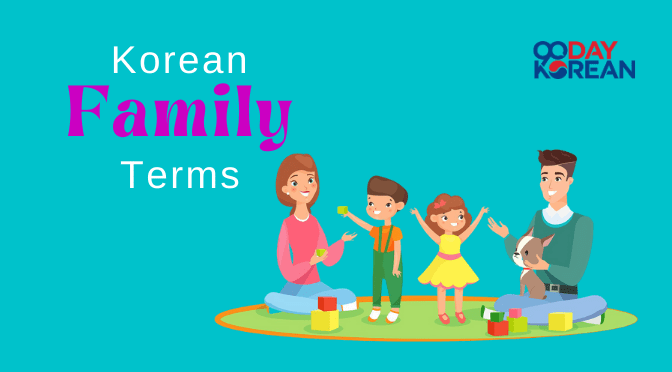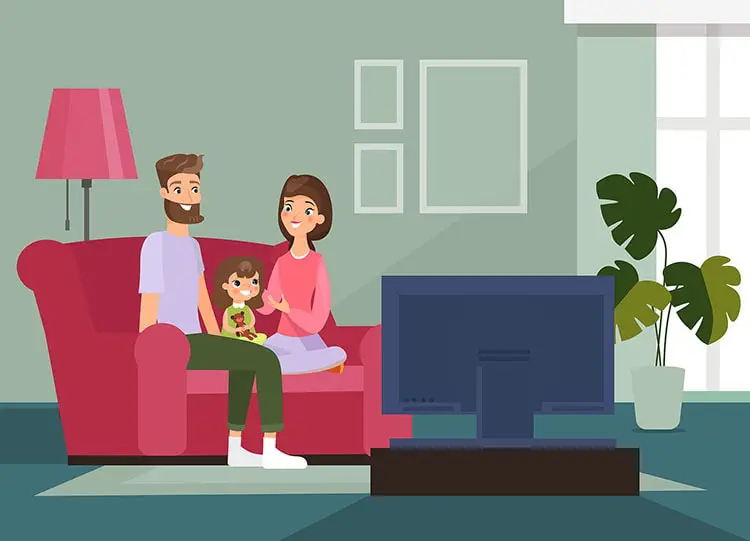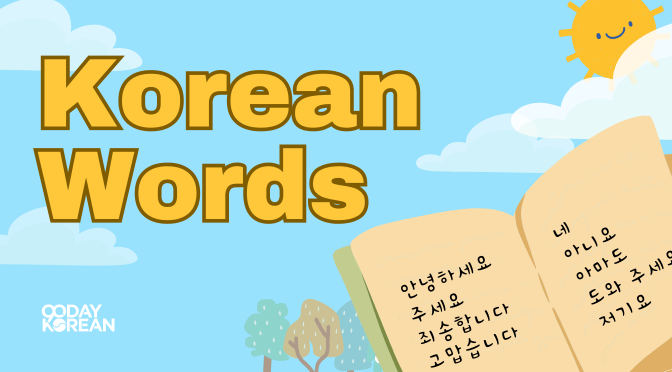Korean family terms are very important in Korea. It may come in handy during your vacation when you meet different people especially if you’re living there for a period of time, as the topic of family is bound to come up.
There are quite a few different family terms in Korean for you to learn. That is because Koreans often use titles instead of names to show respect. These family terms demonstrate the social and family hierarchy.
In this guide, we’ll show you exactly what each family term means and how to use it.
Contents
- 1 Family Members in Korean
- 2 “Family” in Korean
- 3 “Parents” in Korean
- 4 Korean terms for the father’s side of the family
- 5 Korean terms for the mother’s side of the family
- 6 Korean terms for married couples to use with each other
- 7 Relatives in Korean
- 8 “Uncle” in Korean
- 9 “Aunt” in Korean
- 10 How Many People Are in Your Family?
- 11 A word of caution about Romanization
- 12 Wrap Up
Family Members in Korean
These are the terms that you will absolutely need to learn to discuss family with your new Korean-speaking friends and contacts. You’ll quickly find yourself using at least one of these words every day! Whether you are talking with or about your family or with others, you can use the same words.
| English | Korean |
|---|---|
| Family | (gajok) |
| Father | (abeoji) |
| Dad | (appa) |
| Mother | (eomeoni) |
| Mom | (eomma) |
| Parents | (bumonim) |
| Grandparents | (jobumonim) |
| Grandfather | (harabeoji) |
| Grandmother | (halmeoni) |
| Big brother (if you are a boy) | (hyeong) |
| Big brother (if you are a girl) | (oppa) |
| Big sister (if you are a boy) | (nuna) |
| Big sister (if you are a girl) | (eonni) |
| Younger sibling | (dongsaeng) |
| Younger brother | (namdongsaeng) |
| Younger sister | (yeodongsaeng) |
| Brothers | (hyeongje) |
| Sisters | (jamae) |
“Family” in Korean
Before we deep dive into each family term in Korean, we should also know the Korean word for “family.” The word family in Korean is 가족 (gajok).
The first part of the word, “가 (ga),” often appears in other words related to family, such as 가정 (gajeong), which is a less commonly used word for “family,” or in restaurant names such as 유가네 (yugane), which would translate as “Yoo family.” Knowing the meaning of different parts of words can help you grow your vocabulary very quickly.
If you want to say “my family,” then instead of using 제 (je) or 내 (nae) for my, you can use 우리 (uri). Usually, 우리 (uri) means “our,” but it can mean “my” when referring to your family.
Sample Sentences:
가족끼리 여행 중이에요. (gajokkkiri yeohaeng jungieyo)
We are traveling as just a family.
저는 가족들과 함께 경주에 갔어요. (jeoneun gajokdeulgwa hamkke gyeongjue gasseoyo)
I went to Gyeongju with my family.
그 파티에 가족도 초청할 거야? (geu patie gajokdo chocheonghal geoya)
Will you invite your family to the party?
If you want to learn how to build your own Korean sentences, we have a resource to help you learn the basic Korean sentence structure.
“Sister” in Korean
There are different ways to say “sister” in Korean. It depends on the gender of someone addressing one’s sister. For males, an older sister is addressed as 누나 (nuna). For females, an older sister is called 언니 (eonni).
누나 (nuna) and 언니 (eonni) can also be used when talking about one’s older sister to others. These can also be used when talking about or addressing an older sister not related to you but with whom you have a close relationship.
Below are sample sentences for “sister” in Korean:
나에게는 누나 한 명이 있어요. (naegeneun nuna han myeongi isseoyo.)
I have an older sister.
언니는 나보다 10살이 많아요. (eonnineun naboda 10sari manayo.)
My sister is ten years older than me.
Check out the video below to learn more about the word Unnie (언니).
“Younger sister” in Korean
A younger sister in Korean is 여동생 (yeodongsaeng). This word is used when you’re talking about your younger sister to others. It is used regardless of your gender.
In addition, the general term for “sister” in Korean is 자매 (jamae).
“Brother” in Korean
Similar to “sister,” the Korean word for brother is also dependent on who’s addressing the brother. For males, 형 (hyeong) is used to address an older brother in Korean, while for females, 오빠 (oppa) is used. Both 형 (hyeong) and 오빠 (oppa) are also used when referring to one’s older brother to others.
Here are sample sentences for “brother” in Korean:
형은 소파에 잠깐 누웠어요. (hyeongeun sopae jamkkan nuwosseoyo.)
My brother lay down on the sofa for a while.
우리 오빠는 대학생이에요. (uri oppaneun daehaksaengieyo.)
My brother is a college student.
“Younger brother” in Korean
A younger brother in Korean is 남동생 (namdongsaeng). This word is used by both males and females when talking about one’s younger brother.
The general term for “brother” is 형제 (hyeongje).
“Parents” in Korean
The word parents in Korean is 부모 (bumo). However, you’ll use the word 부모님 (bumonim) if you’re talking about your parents to others. Adding the honorific title 님 shows respect to your parents when you talk about them.
“Father” in Korean
Father in Korean can be expressed in two ways. One way to call or address your father is 아버지 (abeoji). You can also use this when talking about your father to others.
Another way to call or address your father in Korean is 아빠 (appa). This word means “dad” in English.
“Mother” in Korean
Mother in Korean can be expressed in two ways, similar to father in Korean. One way to call or address your mother is 어머니 (eomeoni). This can also be used when talking about your mother to others.
The second way to express mother in Korean is 엄마 (eomma). This word means “mom” in English.
Korean terms for the father’s side of the family
The next two sections may be more challenging for you to learn as there are many new terms to memorize. However, some of these words may come in surprisingly handy to know. In this section, we will go over terms that are specific to times when you are speaking of your father’s side of the family.
| English | Korean |
|---|---|
| Father’s side of the family | (chinga) |
| Father’s older brother | (keunappa), (baekbu) |
| Father’s older brother’s wife | (keuneomma), (baengmo) |
| Father’s younger brother | (jageunappa) |
| Father’s younger brother’s wife | (jageuneomma) |
| Father’s unmarried younger brother | (samchon), (sukbu) |
| Father’s sister | (gomo) |
| Father’s sister’s husband | (gomobu) |
Korean terms for the mother’s side of the family
Much like the above-mentioned terms for your father’s side of the family, these terms are only used when you want to talk about your mother’s side. Talking about your father’s and mother’s sides of the family may not be a daily topic for you, but these are incredibly useful words to know.
| English | Korean |
|---|---|
| Mother’s side of the family | (oega) |
| Maternal grandfather | (oeharabeoji) |
| Maternal grandmother | (oehalmeoni) |
| Mother’s brother | (oesukbu) |
| Mother’s brother’s wife | (oesungmo) |
| Mother’s sister | (imo) |
| Mother’s sister’s husband | (imobu) |
Korean terms for married couples to use with each other
Unless you marry a Korean or chat a lot with someone who is married to a Korean, the following section may not be of great importance to you. However, if you do intend to marry a Korean or one of your best friends is married, you will want to know this vocabulary and be able to use it. Some vocabulary changes depending on the situation they are being used in, and in those cases, we have made a note beside the word.
| English | Korean |
|---|---|
| Husband | (nampyeon) |
| Wife | (buin) |
| In-laws | (sadon) |
| Father-in-law (husband’s side) | (abeonim), (siabeoji) |
| Father-in-law (wife’s side) | (jangin) |
| Mother-in-law (husband’s side) | (eomeonim), (sieomeoni) |
| Mother-in-law (wife’s side) | (jangmonim) |
| Brother-in-law (husband’s side, older brother) | (ajubeonim), (hyeongnim) |
| Brother-in-law (husband’s side, younger brother) | (sidongsaeng) |
| Brother-in-law (husband’s side, younger, married, addressed directly) | (seobangnim) |
| Brother-in-law (husband’s side, younger, unmarried, addressed directly) | (doreyonnim) |
| Husband’s older brother’s wife | (hyeongnim) |
| Husband’s younger brother’s wife | (dongseo) |
| Brother-in-law (wife’s side, older brother) | (hyeongnim) |
| Brother-in-law (wife’s side, younger brother) | (cheonam) |
| Wife’s older brother’s wife | (ajumeonim) |
| Wife’s younger brother’s wife | (cheonamdaek) |
| Sister-in-law (husband’s side, older sister) | (hyeongnim), (eonni) |
| Sister-in-law (husband’s side, younger sister) | (dongseo), (agassi) |
| Sister-in-law (wife’s side, older sister) | (cheohyeong), (hyeongnim) |
| Sister-in-law (wife’s side, younger sister) | (cheoje) |
| Husband’s older sister’s husband | (seobangnim) |
| Husband’s younger sister’s husband | (seobangnim) |
| Wife’s older sister’s husband | (hyeongnim) |
| Wife’s younger sister’s husband | (dongseo) |
| Husband (when talking about him with other people) | (juin), (bakkatyangban), (juinyangban) |
| Husband (when talking about him with adults with children) | (aebi) |
| Wife (when talking about her to non-relatives) | (anae) |
| Wife (when talking about her with other people) | (ansaram) |
| Wife (when talking about her with adults with children) | (emi) |
“Wife” in Korean
The word wife in Korean is 부인 (buin). However, there are other words you’ll use when talking about your wife to others. There are the words 아내 (anae), 안사람 (ansaram) and 에미 (emi). Below are example sentences on their usage:
에미 말을 잘 들어라. (emi mareul jal deureora)
Listen to your mother.
안사람은 지금 친정에 있습니다. (ansarameun jigeum chinjeonge itseumnida)
My wife is at her parents right now.
부인께서는 요즘 어떻게 지내십니까? (buinkkeseoneun yojeum eotteoke jinaesimnikka)
How is your wife doing these days?
아내가 어제 아들을 낳았어요. (anaega eoje adeureul naasseoyo)
My wife gave birth to a son yesterday.
“Mother-in-law” in Korean
The Korean term for mother-in-law can be expressed in a number of ways. The term or title used to address mother-in-law in Korean depends on which side of the family she belongs to. Mother-in-law in Korean for the husband’s side is called 어머님 (eomeonim) or 시어머니 (sieomeoni). On the other hand, for the wife’s side, it’s 장모님 (jangmonim).
“Father-in-law” in Korean
Similarly, father-in-law in Korean also depends on the side of the family he belongs to. If he belongs to the husband’s side, the father-in-law is called 아버님 (abeonim) or 시아버지 (siabeoji). While he is called 장인 (jangin) on the wife’s side.
“Sister-in-law” in Korean
Just like sister in Korean, there are different terms for sister-in-law depending if she’s the older or younger sister. First, for the husband’s side, 형님 (hyeongnim) and 언니 (eonni) is used to address the older sister, while 동서 (dongseo) and 아가씨 (agassi) are for the younger sister. For the wife’s side, the older sister-in-law is addressed as 처형 (cheohyeong) or 형님 (hyeongnim), while the younger sister-in-law is 제 (cheoje).
Additionally, if you’re a guy, you can call your younger brother’s wife 제수 (jesu), and 올케 (olke) if you’re a girl. If you have an older brother who’s married, you can call his wife 형수님 (hyeongsunim) if you’re a guy. If you’re a girl, you can call your older brother’s wife as 새언니 (saeeonni).
“Brother-in-law” in Korean
Addressing your brother-in-law in Korean is a bit more complex. On the husband’s side, you call him 아주버님 (ajubeonim) or 형님(hyeongnim) if he’s the older brother. If he’s younger, you can call him 시동생 (sidongsaeng). However, a younger brother-in-law can also be addressed as 서방님 (seobangnim) if he’s married and 도련님 (doreyonnim) if he’s unmarried. On the wife’s side, the older brother-in-law is called형님 (hyeongnim), and the younger one is 처남 (cheonam).
To add, your younger sister’s husband can be addressed as 매제 (maeje), if you’re a guy and 제부 (jebu) if you’re a girl. For your older sister’s husband, you can call him 매형 (maehyeong) if you’re a guy and 형부 (hyeongbu) if you’re a girl.
Terms for your siblings’ spouses
These words will be ones you will perhaps use most rarely, but they could be fun to learn. And you never know when you might need them!
| English | Korean |
|---|---|
| Older brother’s wife (for men) | (hyeongsunim) |
| Older sister’s husband (for men) | (maehyeong) |
| Younger brother’s wife (for men) | (jesu) |
| Younger sister’s husband (for men) | (maeje) |
| Older brother’s wife (for women) | (saeeonni) |
| Older sister’s husband (for women) | (hyeongbu) |
| Younger brother’s wife (for women) | (olke) |
| Younger sister’s husband (for women) | (jebu) |
Relatives in Korean
Although we saved this list for last, most of this vocabulary will actually be greatly useful to you. We have separated them from the other words as they are difficult to place under a specific section. However, alongside the vocabulary for immediate family, these are the next most important set of vocabulary for you to learn in the beginning stages.
| English | Korean |
|---|---|
| Relatives | (chincheok) |
| Parent’s family | (chinjeong) |
| Husband’s family | (sijip) |
| Child/Children | (ai) |
| Son | (adeul) |
| Daughter | (ttal) |
| Cousin | (sachon) |
| Uncle | (samchon) |
| Aunt | (sungmo) |
| Nephew | (joka) |
| Niece | (jokattal) |
| Grandchildren | (sonju) |
| Grandson | (sonja) |
| Granddaughter | (sonnyeo) |
“Uncle” in Korean
In this section, we’ll show you more detailed information on how to say uncle in Korean. But before that, you need to understand that there are several different ways to say it. The correct word depends on if it’s the side of the father or the mother of the Korean family.
Besides that, it also depends on whether the male sibling is older or younger and if he’s married and has a wife or not. Sounds confusing? We know, especially with more family members! There certainly are lots of terms for the members of the family in Korean. But we’ll quickly and effectively teach you all the words for uncle in Korean.
Uncle in Korean (Father’s side)
There are four ways how to call your uncle from your father’s side. Keep in mind that even a change in his marital status affects how you should address him.
삼촌 (samchon)
father’s unmarried younger brother
작은아버지 (jageunabeoji)
father’s married younger brother
Note: 작은 (jageun) means “small” and 아버지 (abeoji) means “father”
큰아버지 (keunabeoji)
father’s older brother
Note: regardless of marital status 큰 means “big,” and 아버지 means “father”
고모부 (gomobu)
the husband of father’s sister
Note: 고모 means “aunt” from the father’s side, and 부 (bu) specifies you’re talking about the aunt’s husband)
Example Sentence:
우리 삼촌은 아직도 부모님과 함께 살고 있어요. (uri samchoneun ajikdo bumonimgwa hamkke salgo isseoyo.)
Our uncle (father’s unmarried little brother) still lives with his parents.
Uncle in Korean (Mother’s side)
For one’s uncle on the mother’s side, it’s a bit simpler since there are only two words to remember. Unlike on the father’s side, marital status or age has no bearing on how you call your uncle.
외삼촌 (oesamchon)
mother’s brother, regardless of marital status or age, with 외 designating it as mother’s side
이모부 (imobu)
mother’s sister’s husband
Note: with 부 specifying he’s the husband and 이모 meaning ‘aunt’ from mother’s side
Example Sentence:
오늘 우리 이모와 이모부를 보러 갈거에요. (oneul uri imowa imobureul boreo galgeoeyo.)
Today we will visit my aunt (from my mother’s side) and her husband.
“Aunt” in Korean
Similar to uncle, there are also different ways to say aunt in the Korean language. It may depend on if she’s the sister of your mother or father, or she may be your father’s brother’s wife.
You can call your mother’s sister 이모 (imo) while your father’s sister 고모 (gomo). However, the most common term for aunt in Korean is 숙모 (sungmo).
How Many People Are in Your Family?
In English, people will often ask a question like “Do you have any brothers or sisters?” However, the same question in Korean would be “How many people are in your family?” To answer this question, you should count your mother, father, brothers, and sisters. If you have sons or daughters, then you can count your spouse and children instead. You can then answer by saying something like ‘There are five people in my family”.
Look at the dialogue below to see how to ask about someone’s family in Korean:
A: 가족이 몇 명이에요? (gajogi myeot myeongieyo)
How many people are in your family?
B: 가족이 다섯 명이에요. (gajogi daseot myeongieyo)
There are five people in my family.
A word of caution about Romanization
While you can study the words in this article simply by reading their romanized versions, it will come in handy for you to be able to read Hangeul (the Korean alphabet) if you ever want to take your Korean skills to the next level. Hangeul is quite simple; you can learn it in just 90 minutes!
After you’ve familiarized yourself with Hangeul, you’ll be able to supercharge your Korean learning. Understanding K-Dramas, reading signs, talking to Korean friends, and getting familiar with the culture will all become a lot easier. So, if you’re serious about learning Korean, why not learn Hangeul today?
Wrap Up
Wow, that was quite the list! Do you have similar terms for family members and friends in your native language? Feel free to tell us about your family in Korean in the comments – we’d love to hear all about it!









How would you refer to a very close friend’s mother?
Hi, Bee! We usually say “어머님”. ^^
In Singapore we refer to our parent’s friends (and even taxi drivers, stall owners, food vendors older than you etc) as “Aunty” or “Uncle”, even though they’re not related to us. What term would you use for your parent’s close friends who are your parent’s age?
Hi, Carmen! It’s the same in Korea! We say “이모” (Aunty) and “삼촌” (Uncle) for parents’ friends. ^^
What is the right term for the girlfriend of my father
Hi, Anna! You can call her “아주머니”. ^^
This is great I have a whole notebook full of korean words already thank you!
Awesome! It’s our pleasure. We’re glad that it has been valuable to you. ^^
Thank you so much this has also helped me (^_^) 정말 고맙습니다. 즐거운 주말 보내세요 -Savanah Park Rose Kim
Thanks, Savanhah! Keep going! ^^